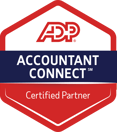Best Accounting Software for Law Firms
Jay Mims
8/19/20244 min read
When it comes to accounting software for law firms, it's essential to choose a solution that caters specifically to the legal industry’s unique requirements, such as trust accounting, case management integration, billing, and compliance with legal regulations. Here are some of the best accounting software options for law firms:
1. Clio Manage (with Clio Grow)
Overview: Clio is a comprehensive legal practice management software that includes integrated accounting features. It’s widely used by law firms for managing cases, clients, billing, and trust accounts.
Best For: Small to medium-sized law firms.
Key Features: Time tracking, billing, trust accounting, client management, and integration with QuickBooks and Xero for advanced accounting needs.
Why It’s Good for Law Firms: Clio is designed specifically for law firms, with features that support legal billing, trust fund management, and compliance.
2. QuickBooks (with LeanLaw Integration)
Overview: QuickBooks is a popular general accounting software that can be tailored for law firms with the addition of the LeanLaw integration. LeanLaw provides legal-specific features like time tracking, trust accounting, and LEDES billing.
Best For: Law firms of all sizes, especially those already using QuickBooks.
Key Features: Trust accounting, time tracking, legal billing, and financial reporting.
Why It’s Good for Law Firms: QuickBooks’ flexibility and the LeanLaw integration provide law firms with a robust accounting solution that meets legal industry standards.
3. CosmoLex
Overview: CosmoLex is a cloud-based law practice management software that combines practice management, billing, and accounting in one system, eliminating the need for third-party accounting software.
Best For: Small to medium-sized law firms.
Key Features: Trust accounting, billing, time tracking, matter management, and compliance management.
Why It’s Good for Law Firms: CosmoLex is designed specifically for law firms, with built-in legal accounting features that ensure compliance with bar association rules.
4. Zola Suite
Overview: Zola Suite is a cloud-based legal practice management software with strong accounting features. It offers integrated accounting, billing, and case management tools in a single platform.
Best For: Small to medium-sized law firms.
Key Features: Trust accounting, billing, time and expense tracking, and comprehensive financial reports.
Why It’s Good for Law Firms: Zola Suite’s built-in accounting features are tailored for the legal industry, providing seamless management of client funds and compliance with trust accounting rules.
5. PCLaw
Overview: PCLaw is an all-in-one legal accounting and practice management software. It provides robust tools for managing trust accounts, billing, and case-related financials.
Best For: Small to medium-sized law firms.
Key Features: Trust accounting, general ledger, time and billing, and financial reporting.
Why It’s Good for Law Firms: PCLaw is specifically designed for law firms, with a strong focus on legal accounting and compliance.
6. Timeslips by Sage
Overview: Timeslips is a time and billing software that integrates with various accounting solutions, including QuickBooks. It’s particularly well-suited for law firms focused on tracking billable hours.
Best For: Small to medium-sized law firms with a focus on time-based billing.
Key Features: Time tracking, billing, invoicing, and integration with QuickBooks for accounting.
Why It’s Good for Law Firms: Timeslips provides detailed time tracking and billing features that are essential for law firms, with the flexibility to integrate with accounting software.
7. Xero (with Practice Ignition Integration)
Overview: Xero is a cloud-based accounting software that, when paired with Practice Ignition, becomes a powerful tool for law firms. Practice Ignition adds features for managing client engagements, billing, and trust accounts.
Best For: Small to medium-sized law firms, especially those looking for a modern, cloud-based solution.
Key Features: Invoicing, expense management, trust accounting, and financial reporting.
Why It’s Good for Law Firms: Xero’s integration with Practice Ignition allows law firms to manage accounting while ensuring compliance with legal financial requirements.
8. Jurysheets
Overview: Jurysheets is a specialized accounting software designed specifically for law firms. It focuses on trust accounting, matter management, and financial reporting.
Best For: Small to medium-sized law firms.
Key Features: Trust accounting, time and billing, financial reporting, and matter management.
Why It’s Good for Law Firms: Jurysheets is built with law firm accounting in mind, providing features that cater directly to the needs of legal practices.
9. Actionstep
Overview: Actionstep is a cloud-based legal practice management software with integrated accounting features. It offers a full suite of tools for managing a law firm’s operations and finances.
Best For: Small to large law firms.
Key Features: Trust accounting, billing, time tracking, and client management.
Why It’s Good for Law Firms: Actionstep’s comprehensive approach to practice management and accounting ensures that all aspects of a law firm’s financial operations are covered.
10. Tabs3
Overview: Tabs3 is a legal practice management and accounting software that has been serving law firms for decades. It offers comprehensive features for managing billing, accounting, and practice management.
Best For: Small to medium-sized law firms.
Key Features: Trust accounting, general ledger, time and billing, and financial reporting.
Why It’s Good for Law Firms: Tabs3’s long history and focus on the legal industry make it a reliable choice for law firms that need a robust accounting solution.
Key Considerations
When choosing accounting software for a law firm, consider the following:
Trust Accounting: Ensure the software can handle trust and IOLTA (Interest on Lawyers Trust Accounts) accounting, as this is a critical requirement for law firms.
Compliance: The software should comply with legal accounting standards and regulations.
Integration: Look for software that integrates with other tools your firm uses, such as practice management software.
Ease of Use: Choose software that is user-friendly and provides adequate support and training.
Reporting: Robust reporting features are important for tracking financial performance and ensuring compliance.
These software options cater to different sizes and types of law firms, so selecting the one that best fits your firm’s specific needs is crucial.

Credentials
CPA # 44657
QuickBooks Pro Advisor
Schedule a meeting
386-846-9140
jay@integralcpa.com
128 Orange Ave
Daytona Beach, FL 32114
© 2025. All rights reserved.






